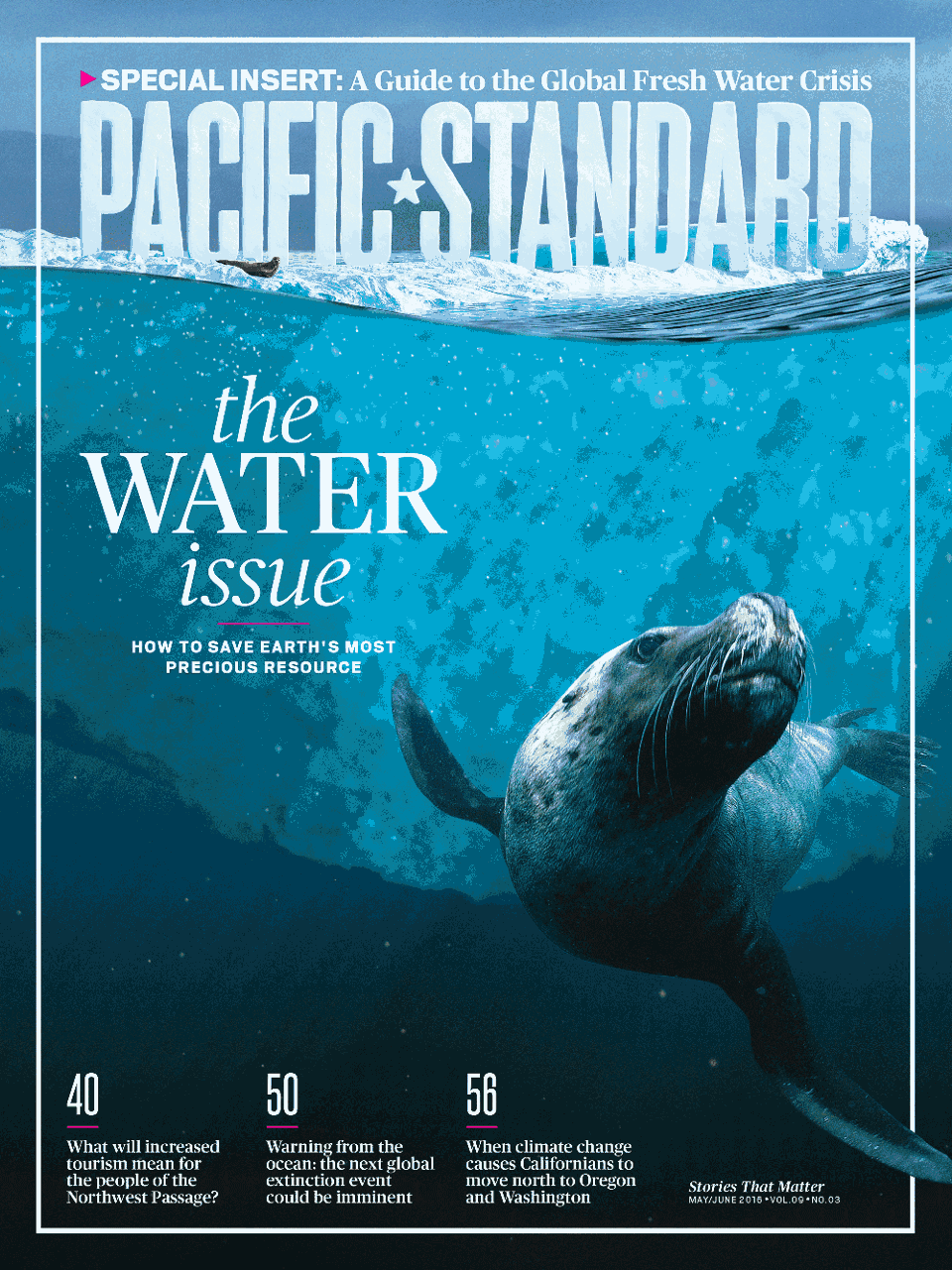What does it mean for churches that water, such an important religious symbol, is disappearing before our eyes?
By Laura Turner
(Illustration: Jason Solo)
Editor’s Note: A version of this story first appeared on PSmag.com on April 20, 2015. This edited version was published in our May/June 2016 print issue.
After historicallybeing known for a focus on saving souls and perfecting their faith to get into heaven, many Christian groups have begun to look outside themselves and address the environment. In recent years, some churches have recognized the difficult situation the planet is in and taken steps to do what they can to reduce water usage and care for those most affected by the crisis.
Attribute this to “creation care,” a term evangelical leaders have been using since the late 1970s to talk about the Christian duty to be responsible and careful in one’s treatment of Earth. This movement takes several passages of Scripture for its mandate; chief among them is Genesis 2:15, where we read that God “took the man and put him in the Garden of Eden to work it and take care of it.” That passage, among others, has been claimed by some Christian environmentalists as religious grounds for their cause. It’s cited on Billy Graham’s website as a mandate to “watch over [the world] and use it wisely.” Other Christian organizations, including the Salvation Army and Geneva College, point to Genesis 2:15 on their websites as a call to honor the world that God created.
This shift in evangelical Christianity is especially significant in places like California, where a historic drought is devastating the state and the effects of climate change can no longer be ignored. While many evangelical Christians still live with an unflagging focus on life in heaven, some are now unable to separate their faith from the call to be better stewards of life on Earth.
Brea CongregationalUnited Church of Christ in Orange County made its campus more eco-friendly in 2009, when leaders removed part of the church’s grass lawn to make way for a garden featuring manzanita, California oak, and western redbud, all of which are well-adapted to drought conditions and require relatively little water to grow and thrive. The church also replaced its traditional pew Bibles — kept in racks for easy thumbing during a sermon — with The Green Bible, a version made entirely of recycled paper and linen with passages concerning the environment highlighted in green.

This story first appeared in the May/June 2016 issue of Pacific Standard.
Orange County hasn’t been affected as heavily by the drought as the Central Valley, where some residents are holding fundraisers and literally praying for rain, but the United Church of Christ is a progressive denomination within the Christian church. They have created the UCC Centers for Environmental Justice, which hosts ministers from across the country and trains them in justice-related responses to environmental damage; past training included what the Center called “toxic tours” of Seattle, where ministers were shown some of the city’s most environmentally degraded pockets.
Another UCC church, Metropolitan Community Church in North Hollywood, has encouraged members to “engage in water conservation as a spiritual practice,” according to Reverend Dr. Robert Shore-Goss. Leaders have installed solar panels on their campus and are looking to “turn around our recklessness with the Earth,” Shore-Goss says. They’ve even gone so far as to recognize Earth as a member of their congregation.
The earliestChristians were convinced that Jesus was going to return at any moment and usher in a new era, so they probably didn’t have many ideological concerns about the environment. But since that time, as the world has continued on without Christ’s return to judge the living and the dead, Christians have been divided over how to care for Earth.
Some evangelicals believe they have permission to exploit resources however they see fit, since God gave humans “dominion” over creation. Others remain convinced that we are, finally, at the end times and that we will discard the world like an old coat, so how we treat it is a non-issue. The Gospel of John describes faith in God as the source of “living water,” and billions of people over many centuries have relied on that source. But water itself is running short, and Californians won’t wait until the world ends before they go looking for more.

||




